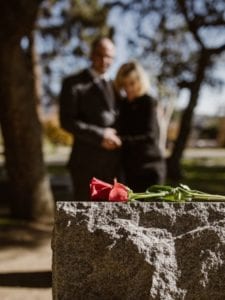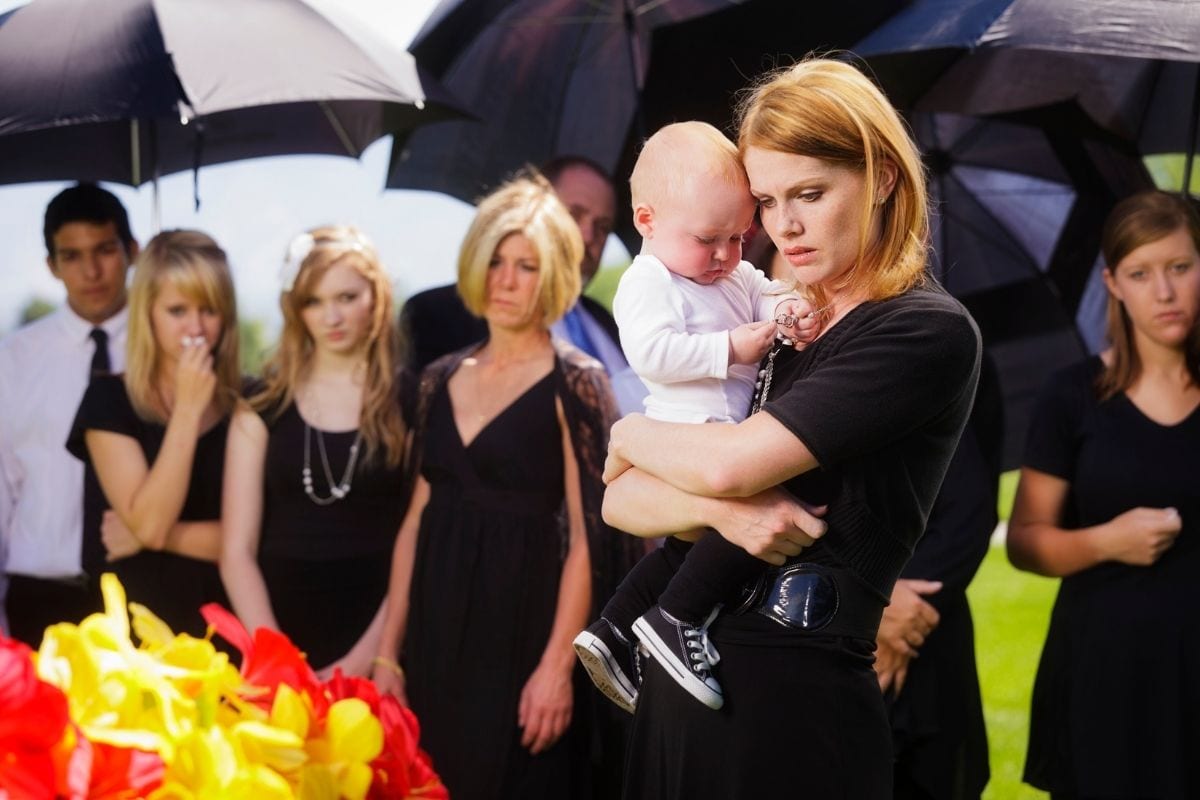Not Every Death Is Wrongful and Not Everyone Can Sue For Wrongful Death
When Colorado Springs families senselessly and suddenly lose a loved one because of another person’s negligence or reckless conduct, deciding whether or not to sue for wrongful death is just one of many questions they may ask themselves.
In their grief and shock, loved ones of the deceased may also want to know how such a tragedy could happen, what they should do now, and whether they can hold accountable the person who caused such pain and disruption.
A Colorado Springs wrongful death lawsuit offers grieving families the opportunity to get answers to all of these questions and provide some sense of closure on their devastating loss. But while all deaths may be painful, they are not all “wrongful.” So, what makes a death “wrongful,” such that family members can seek compensation for their irreplaceable loss? Can any relative file such a suit, and how long do they have to do so? Answers to these questions, found below, can help you determine whether you should sue for wrongful death in Colorado.
What Makes a Death “Wrongful” In Colorado?
Colorado law considers a death “wrongful” if the negligence, recklessness, or intentional conduct of another person or entity caused the death.
Specifically, the Colorado Wrongful Death Act states that:
“When the death of a person is caused by a wrongful act, neglect, or default of another, and the act, neglect, or default is such as would, if death had not ensued, have entitled the party injured to maintain an action and recover damages… the person who would have been liable, if death had not ensued, shall be liable in an action for damages notwithstanding the death of the party injured.”
Put simply, this language means that if the victim had suffered injuries instead of dying and could have filed a personal injury lawsuit against the defendant on their own behalf, certain family members of the victim can sue for wrongful death based on the defendant’s actions that led to the death. The deceased victim obviously cannot seek compensation for their own pain and suffering, loss of future earnings, and other losses arising from their death. That is why Colorado law allows some – but not all – family members to file a lawsuit on behalf of their deceased loved one, and also recover damages for their own losses suffered in the wake of their loved one’s death.
Common incidents that lead people to sue for wrongful death include:
- Auto, truck, and motorcycle accidents
- Slip and fall accidents
- Bicycle accidents
- Criminal or intentional acts of violence
- Defective products, medical devices, and medications
- Medical malpractice
Who Can Sue For Wrongful Death In Colorado?
 No matter how much the sudden loss of a family member may impact their lives, not every relative can sue for wrongful death in Colorado.
No matter how much the sudden loss of a family member may impact their lives, not every relative can sue for wrongful death in Colorado.
Specifically, during the first year after the person’s death, only their surviving spouse may file a wrongful death suit.
In the second year after the death, this circle extends, and both the victim’s surviving spouse as well as any surviving children can pursue a wrongful death action.
If the individual killed does not have a surviving spouse or children, their parents can file a wrongful death suit at any time during those first two years. Additionally, the representative of the decedent’s estate can file what is called a “survival action” to recover certain types of damages, but that too must be filed within two years of the decedent’s death.
Further Reading: Who is Entitled to Wrongful Death Benefits in Colorado?
When Should You Call a Lawyer?
If you have lost a loved one and believe that someone else may be responsible for their death, you should reach out to an experienced wrongful death attorney as soon as possible. While there is no time limit on the grieving process, there is a two-year statute of limitations for wrongful death lawsuits in Colorado. This means that eligible family members who fail to sue for wrongful death within that time will lose any right to seek and receive compensation from those responsible for their loved one’s death.
Talk To The Experienced Attorneys at King & Beaty To Determine Whether You Can and Should Sue For Wrongful Death
The death of your loved one has long-reaching effects that you may not be able to contemplate currently. And while not every death can form the basis of a Colorado wrongful death suit, to fully understand your rights and determine whether you should file a lawsuit, you should speak with an experienced and compassionate Colorado Springs wrongful death attorney right away.
When you meet with the caring and empathetic attorneys at King and Beaty, we will listen to you, answer your questions, and evaluate the facts and circumstances of your loss. If we conclude that there may be a basis for a wrongful death lawsuit, you can make an informed choice as to whether suing for the wrongful death of your loved one will help bring you closure and peace of mind.
Please contact the wrongful death attorneys at King & Beaty to arrange for your free initial consultation.





